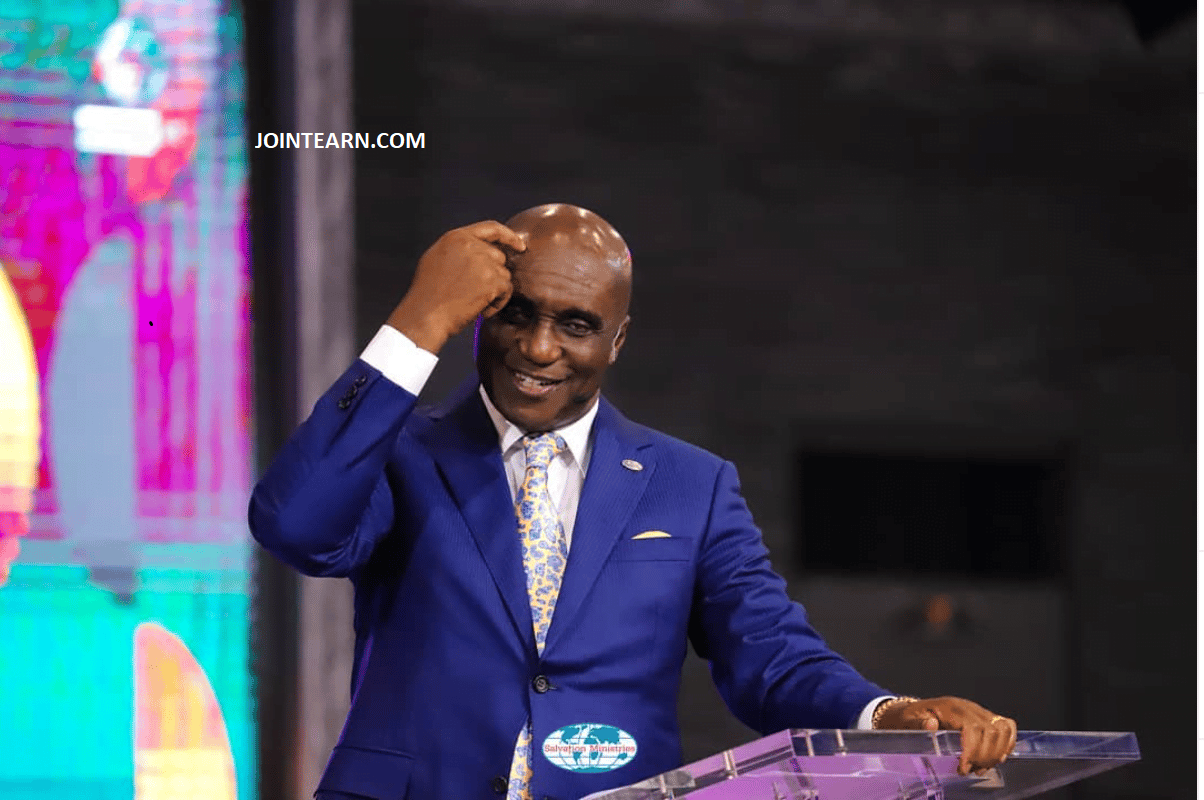In a thought-provoking and candid sermon delivered on Sunday, April 27, 2025, the senior pastor and founder of Salvation Ministries, Pastor David Ibiyeomie, took aim at the growing culture of criticism, particularly within the body of Christ and among Nigerians. In his trademark energetic style, the Port Harcourt-based preacher declared, “You become a critic when you are not gaining motion.”
Addressing his congregation during the main Sunday service at the church’s headquarters in GRA, Port Harcourt, Rivers State, Pastor Ibiyeomie did not hold back as he dissected the psychology behind criticism. According to the prominent televangelist, people who are progressing in life are too focused on their goals to waste time faulting others. Instead, it is those who feel stagnant or left behind who resort to constant fault-finding and negativity.
“Criticism Comes From a Place of Frustration”
The fiery preacher stated that most critics are often victims of their own frustration. “When you are not making progress, you become bitter and begin to talk. Criticism is not a fruit of the Spirit; it is a sign of idleness and backwardness,” he said. “You never see a man on the move looking at what another man is doing. It’s only the one standing still who has the time to talk.”
He further challenged members of the congregation to look inward when they find themselves tempted to criticize others, especially those who are seemingly succeeding. “Rather than asking why someone is prospering, ask why you are not moving. Check your steps. Review your decisions. Don’t let envy destroy your destiny,” he advised.
A Message to the Church and Society
Pastor Ibiyeomie’s message appeared directed not just at individuals, but also at wider societal tendencies, particularly on social media where public figures—especially pastors—are frequently subjected to scrutiny. He lamented how the culture of public commentary has spiraled into baseless character assassination and unproductive arguments.
“Social media has given everyone a microphone, including those who have nothing to say. Many sit behind their phones and laptops criticizing men of God, businesses, government, and even their own families,” he said. “How can a man who has never built a kiosk criticize a man who has built a cathedral?”
He warned that such habits were spiritually and emotionally destructive, likening constant critics to those who “feed on bitterness” and “carry envy like luggage.” He urged Christians to cultivate a spirit of encouragement, excellence, and self-assessment instead of tearing others down.
Criticism Is Not Accountability, He Says
Anticipating possible pushback, Pastor Ibiyeomie drew a clear distinction between constructive feedback and destructive criticism. “Accountability is rooted in love and a desire to see growth. Criticism is rooted in pride and envy. There’s a big difference,” he said.
He maintained that while leaders should be open to correction, the intention behind many online attacks or private gossip is rarely to build but to break. He further encouraged his followers to be mindful of the energy they absorb, warning against spending time with people who speak negatively about others.
“If they always bring you gossip, very soon you will be the topic. Avoid such people. They are enemies of progress,” he said.
Encouraging Personal Growth
Beyond the sharp rebuke of critics, Pastor Ibiyeomie also used the moment to encourage personal responsibility and self-development. He urged his listeners to focus on their own goals and spiritual journeys, rather than comparing themselves to others or trying to sabotage others’ success.
“Focus on motion. Work on your purpose. Learn a new skill. Pray more. Build something. Read a book. Stop sitting idle and pointing fingers,” he advised. “If your life is busy with purpose, you won’t have time to monitor anyone else.”
The respected clergyman reminded his church that God does not reward murmuring or bitterness, but diligence, faith, and obedience. He pointed to biblical examples of individuals who kept their focus on their calling and were richly rewarded for it—such as Joseph, David, and Paul.
Reactions and Reflections
While the message was met with applause and approval from his congregation, it also stirred discussions among viewers online who streamed the service. Supporters praised the sermon as timely and bold, especially in a society where criticism often masquerades as insight.
Some commenters noted that the message also applies to young people who, rather than building their future, spend much of their time comparing lifestyles and criticizing success stories. Others appreciated the distinction Pastor Ibiyeomie made between feedback and destructive criticism, calling it a much-needed lesson in today’s social climate.
A few, however, felt the message could have acknowledged the need for leaders—including religious ones—to be open to genuine scrutiny and transparency, especially in public-facing roles. But even these voices admitted the central idea rang true: personal stagnation often breeds bitterness, and bitterness often finds expression through criticism.
Conclusion: A Call to Move Forward
Pastor David Ibiyeomie’s sermon served as both a rebuke and a rallying cry. He called on Christians and Nigerians at large to shift their focus from fault-finding to faith-building. His central message was unmistakable: progress silences criticism, and a life filled with purpose has no time for pettiness.
As he rounded off his message, he left his audience with a final charge: “You were not born to sit and talk about others. You were born to rise, shine, and make a difference. Stop the talk. Start the walk.”












